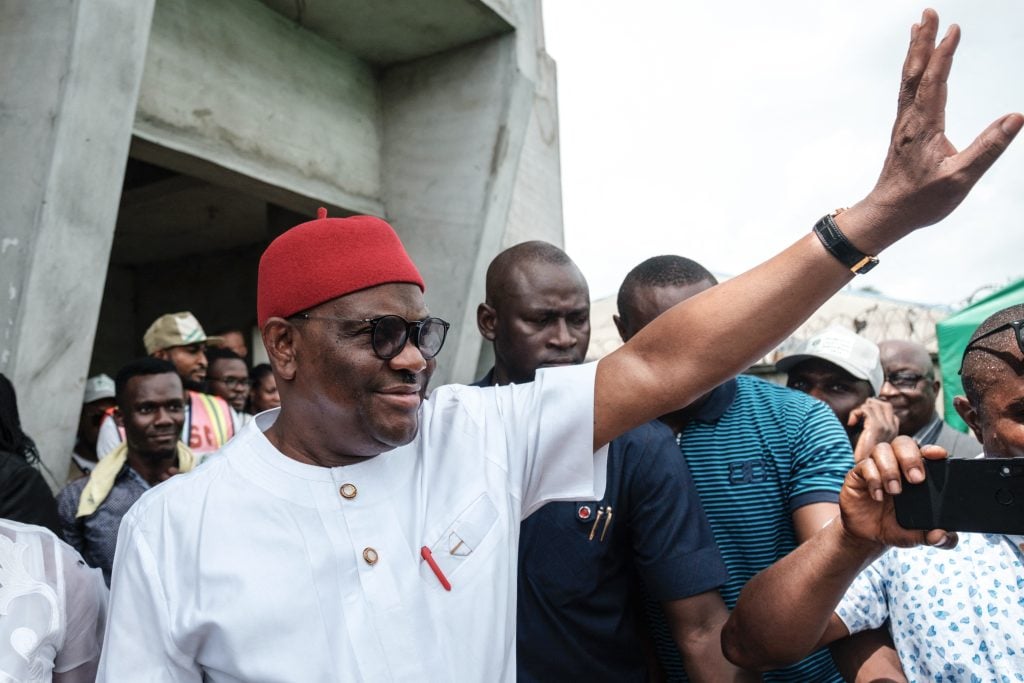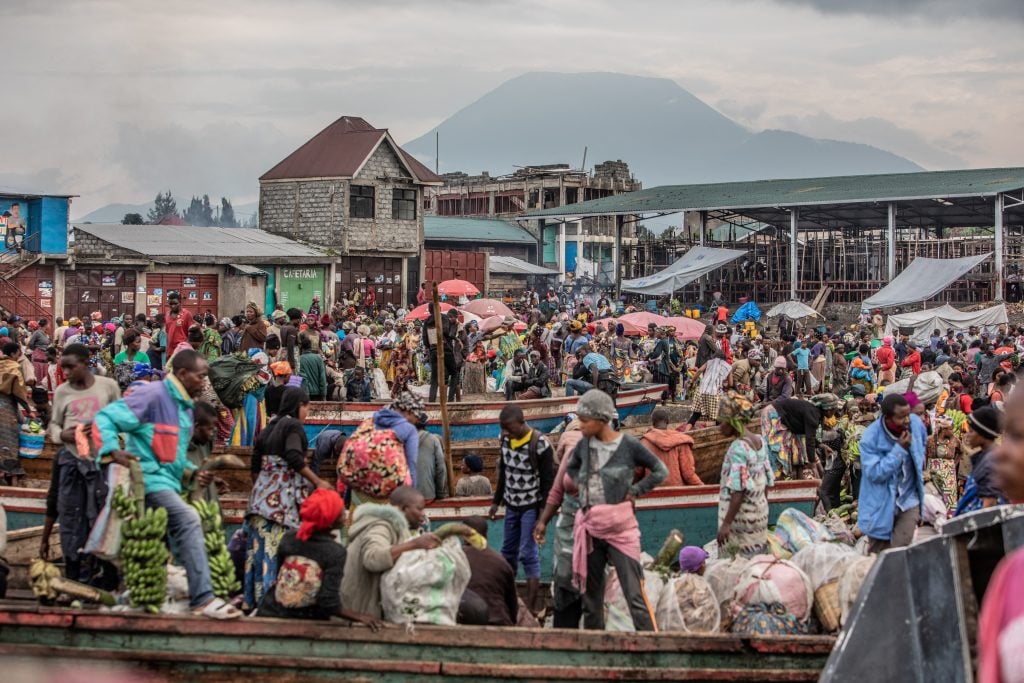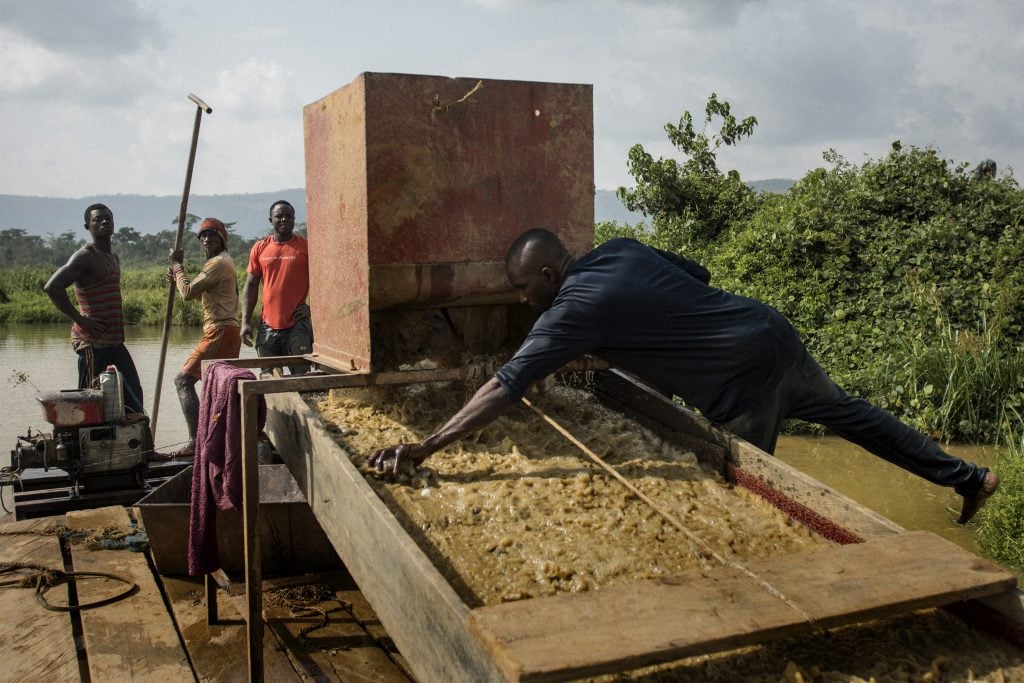
When Nyesom Wike was appointed minister of the Federal Capital Territory (FCT) in August 2023 by President Bola Ahmed Tinubu, many saw it as a curious chapter in a career marked by achievement, epic political mud fights and burned bridges. From an eventful eight years as governor of Rivers State to Peoples Democratic Party (PDP) power broker and potent opposition figure, the 60-year old has always occupied a complex space where achievement and ambition intersect.
As FCT minister, Wike’s signature is imprinted on its infrastructure: its roads, bridges and real estate. It was a capital city grown messy with neglect; travel through satellite towns to the heart of Abuja today and you will pass over refurbished roads, link bridges and thoroughfares once pockmarked by potholes.
In the first months of his tenure, Wike seemingly under-promised and over-delivered. He oversaw the near completion of over 150 kilometres of roads in the FCT, both in the city and its suburbs. The Outer Southern Expressway, the Wuye Flyover Link Bridge, the refurbishment of the Abuja Metro Rail Project and the renovation of key public edifices, such as the International Conference Centre, have collectively transformed large parts of Abuja’s landscape. There is also a refurbishment of the vice president’s residence and the Defence Intelligence Agency’s headquarters.
Salim Yunusa, an Abuja-based journalist, says that, given his career to date, Wike’s appointment was seen as a surprise, perhaps even a gamble. “It paid off, and Wike today stands as one of the best appointments of the current administration. In just two years, he has tackled the infrastructural and administrative backlogs that stalled the FCT for eight years. The once-dark capital lit up; roads opened within the city and its satellite towns; indigenes finally felt included.”
But amid the progress, Yunusa says, two things linger. “The rising cost of living, and a surge in crime. The very people who keep the city running can’t afford to live in it, and have to deal with one-chance attacks and insecurity.”
Mary Ene Inalegwu, a filmmaker, echoes Yunusa’s views on infrastructure, but feels that progress is being made on crime. “Security has improved, with previously unsafe dark spots now secure. My city feels safer than it has been in a while,” she says.
“Movement has become easier, and roads that had been abandoned for years have now been completed, and even routes and bridges I never knew existed have opened up for use.”
Financial autonomy
But Wike’s ambitions extend beyond concrete. He has also pushed for financial reforms, with the FCT’s removal from the Treasury Single Account (TSA) being a notable example. The TSA is a financial management system that mandates all federal government revenue and receipts to be collected and accounted for in a single bank account.
While TSA was introduced to centralise and oversee federal government funds, for the FCT it meant delays and dependence. President Tinubu expressed the hope that leaving the TSA would speed up development of the FCT and enhance residents’ participation in governance.
Escaping from that bureaucratic web gives the Federal Capital Territory Administration (FCTA) greater control over its internally generated revenue (IGR). which is projected at over 600bn naira ($401.2m) this year. The national senate passed a statutory budget of approximately 1.78 trillion naira ($1.19bn) for the FCT in May. The minister has also expanded the collection of previously dormant ground rents, and has moved forward with long-standing projects such as the second runway at Nnamdi Azikiwe International Airport, including tackling compensation disputes with host communities.
Another project is school rehabilitations: 19 have been tackled so far, with larger plans to cover 40 across Abuja. He has also moved to shore up the security architecture, including cooperation with national security agencies, calls for enhanced surveillance infrastructure (such as closed-circuit television and rapid-response capabilities), and the reinforcement of police in crime-prone areas. All these have earned him the nickname “Mr. Project”.
Obinna Ekene, a security guard at a popular Maitama shopping mall, says the impact of Wike’s administration has been felt even in his distant satellite town. “Yes, there’s still crime, but it’s considerably less, and like I heard on the radio, it’s due to Wike’s spearheading of a strong collaboration between security agencies,” he says, adding: “I might not like what he’s done in Rivers State, but I have to respect a politician who actually works more than he talks.”
In 2015 an election commission ordered a re-run of Wike’s election as governor of Rivers State, over count discrepancies. He was alleged to have threatened commission officials during the re-run, which he won.
Emperor of Abuja?
Wike has been granted powers in the FCT rarely seen before. Some critics argue this setup edges toward an “emperor of Abuja” dynamic. A fear is that Wike’s power in the FCT is growing without parallel increases in accountability. But lawmakers have, by and large, praised the administration.
One of them, John Alphabet, a self-described advocate for non-partisan national development, was in 2023 an opposition candidate for the House of Representatives covering Abuja Municipal Area Council (AMAC) and Bwari.
He has since decamped to the ruling All Progressives Congress (APC) party. He says this is mainly due to Wike and that Wike’s style has been defined by bold decision-making, systematic monitoring and strict evaluation.
“Drawing on the Abuja master plan as a general premise, he has pursued specific infrastructural projects across the six area councils of the FCT. His insistence on timely delivery and adherence to standards has sent a strong signal that a ‘new sheriff’ has indeed arrived in town,” Alphabet says.
Not all are so convinced by Wike’s leadership, with some critics pointing to the social and environmental tolls of the rapid development. Hamza Idris, editor-in-chief and chairman of the editorial board of the influential Abuja-based national newspaper Daily Trust, views Wike as a paradox. “While you must acknowledge the fact that he has opened up Abuja with infrastructural developments which have not been seen since the days of Nasir El-Rufai, Wike is also doing the unthinkable – allocating green areas and waterways for the construction of houses and shopping malls.”
Still, Wike’s rare popularity has led analysts to consider his future. Some speculate that Abuja is a step on the road to national power, perhaps even trying again for the presidency – in 2022, he was defeated in the contest to be the PDP’s presidential candidate. Indeed, Wike is now more than a name. He is a presence in Abuja, physically and institutionally, financially and administratively. The unique position of the FCT – which plays host to the government and its many branches – is a position that gives him national visibility.
And despite prompting divergent views, even his fiercest critics seem to agree that, since tackling the FCT, Wike has been “a politician who actually works more than he talks”.






Recent Comments